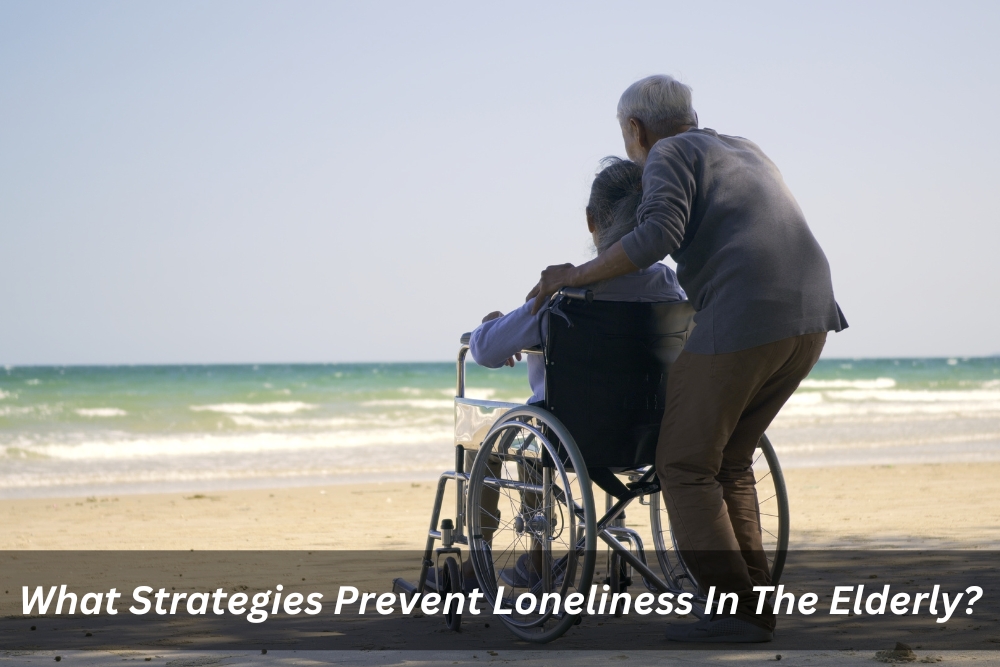As we gracefully age, it’s imperative to prioritise nurturing social bonds and thwarting the shadow of loneliness to safeguard our holistic well-being. The spectre of loneliness among the elderly not only casts a long shadow over their emotional landscape but can also manifest in tangible physical and mental health repercussions, including isolation and health consequences. In this insightful blog post, we will delve into artful strategies for preventing loneliness in the elderly, empowering them to embrace lives brimming with happiness, and vitality, and protecting them from the associated isolation and health consequences.
How can you stay socially connected as you age?
One of the primary challenges in preventing loneliness in the elderly is staying socially connected. As people age, they often experience changes in their social circles, which can result from retirement, the loss of loved ones, or reduced mobility. Here are some strategies to stay socially connected:
- Embrace technology: Technology has revolutionised the way we connect with others. Seniors can use smartphones, tablets, and computers to keep in touch with family and friends through social media, video calls, and messaging apps. Many organisations also offer technology training for seniors to help them navigate these platforms.
- Join clubs and groups: Local clubs, community centres, and organisations often host events and activities for seniors. Whether it’s a book club, a gardening group, or a fitness class, participating in these activities can be an excellent way to meet new people who share your interests.
- Volunteer: Volunteering is a fantastic way to not only combat loneliness but also give back to the community. There are numerous opportunities for seniors to volunteer at local charities, schools, or hospitals. Doing good while connecting with others can be a highly rewarding experience.
- Attend senior centres: Senior centres provide a welcoming and inclusive environment for the elderly. They offer various programs, from exercise classes to social events, which can help seniors build new friendships and strengthen existing ones.
What are some activities that can help you reduce loneliness?
Engaging in activities that promote physical, mental, and emotional well-being can significantly reduce loneliness in the elderly. Here are some activities to consider:
- Exercise: Regular physical activity has numerous health benefits and can boost mood and overall well-being. Seniors can join exercise classes designed for their age group or simply take regular walks in the park. Exercise is an excellent opportunity to meet others who share similar health goals.
- Pursue hobbies: Hobbies can be a fulfilling way to prevent loneliness. Whether it’s painting, knitting, or playing a musical instrument, pursuing a hobby can provide a sense of accomplishment and an opportunity to connect with others who have similar interests.
- Attend cultural events: Museums, art galleries, theatres, and music concerts offer opportunities for seniors to immerse themselves in culture. These events can be enjoyed alone or with friends and family, making them a great option for staying socially engaged.
- Learn something new: Lifelong learning is essential for personal growth and social connection. Seniors can take classes at local community colleges or online courses to explore new interests and meet people with similar passions.
What can the elderly use to prevent loneliness?
In addition to activities, there are specific tools and resources that can help the elderly prevent loneliness:
- Mobility aids: Discover the myriad benefits of using mobility aids for daily living, such as wheelchairs, walkers, and scooters. These invaluable devices grant seniors with limited mobility the independence needed for enhanced social engagement, making social events, shopping, and community activities more comfortable and accessible.
- Home healthcare services: Sometimes, the elderly may require in-home care or healthcare services. Home healthcare professionals not only assist with medical needs but can also provide companionship and social interaction.
- Personal emergency response systems: These systems can provide peace of mind for both seniors and their families. They allow seniors to call for help in case of an emergency, ensuring they feel safe and connected to a support system.
- Transportation services: Many communities offer specialised transportation services for the elderly. These services can help seniors get to medical appointments, social gatherings, or community events.
How can you build and maintain relationships with others while using mobility aids?
Using mobility aids should not be a barrier to building and maintaining relationships. Here are some strategies to stay socially connected while using these devices:
- Attend mobility-friendly events: Look for social events and activities that are specifically designed to be accessible for people using mobility aids. These events can be a great way to meet others who face similar challenges.
- Educate friends and family: Make sure your friends and family understand how to assist you when needed. By educating them on your specific mobility requirements, you can ensure a smoother and more inclusive social experience.
- Explore online communities: Online forums and social media groups exist for virtually every interest and condition. Connecting with like-minded individuals online can provide a sense of belonging and camaraderie.
- Advocate for inclusivity: Encourage local organisations and venues to be more accessible and inclusive for individuals with mobility aids. This not only benefits you but the entire community.
How can you overcome the challenges of preventing loneliness while using mobility aids?
Overcoming the challenges of preventing loneliness while using mobility aids requires resilience and determination. Here are some additional tips to help:
- Maintain a positive outlook: A positive attitude can make a world of difference. Focus on the opportunities and experiences that are still accessible to you, rather than dwelling on limitations.
- Seek support: Connect with support groups for individuals using mobility aids. These groups can provide emotional support and practical advice on staying socially active.
- Adapt and innovate: Don’t be afraid to adapt your social activities to your specific needs. If physical gatherings are challenging, explore virtual events and activities.
- Communicate: Keep the lines of communication open with friends and family. Let them know how they can help you stay connected and ensure you feel included in their plans and activities.
Conclusion
Preventing loneliness in the elderly is a matter of great importance. Social connections and meaningful relationships are vital for a fulfilling life at any age. By embracing technology, engaging in various activities, and utilizing the right tools and resources, seniors can effectively combat loneliness. Additionally, those using mobility aids can build and maintain relationships by seeking accessible events, educating their close ones, exploring online communities, and advocating for inclusivity. With determination and support, loneliness can be kept at bay, ensuring a happier and healthier life for our elderly loved ones.
If you’re committed to ensuring the well-being of the elderly in your life and believe in the importance of preventing loneliness, JB Medical is here to help you. Our range of mobility aids is designed to empower the elderly and enhance their quality of life. Don’t wait to take action; make a positive difference today. Let’s work together to keep our loved ones socially connected, active, and thriving. Contact JB Medical today to explore our solutions and join us in the mission to prevent loneliness in the elderly.




